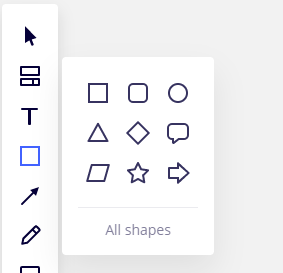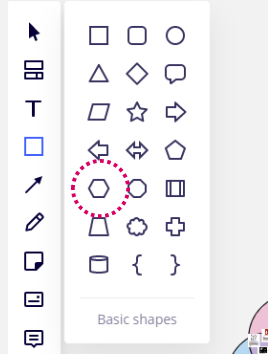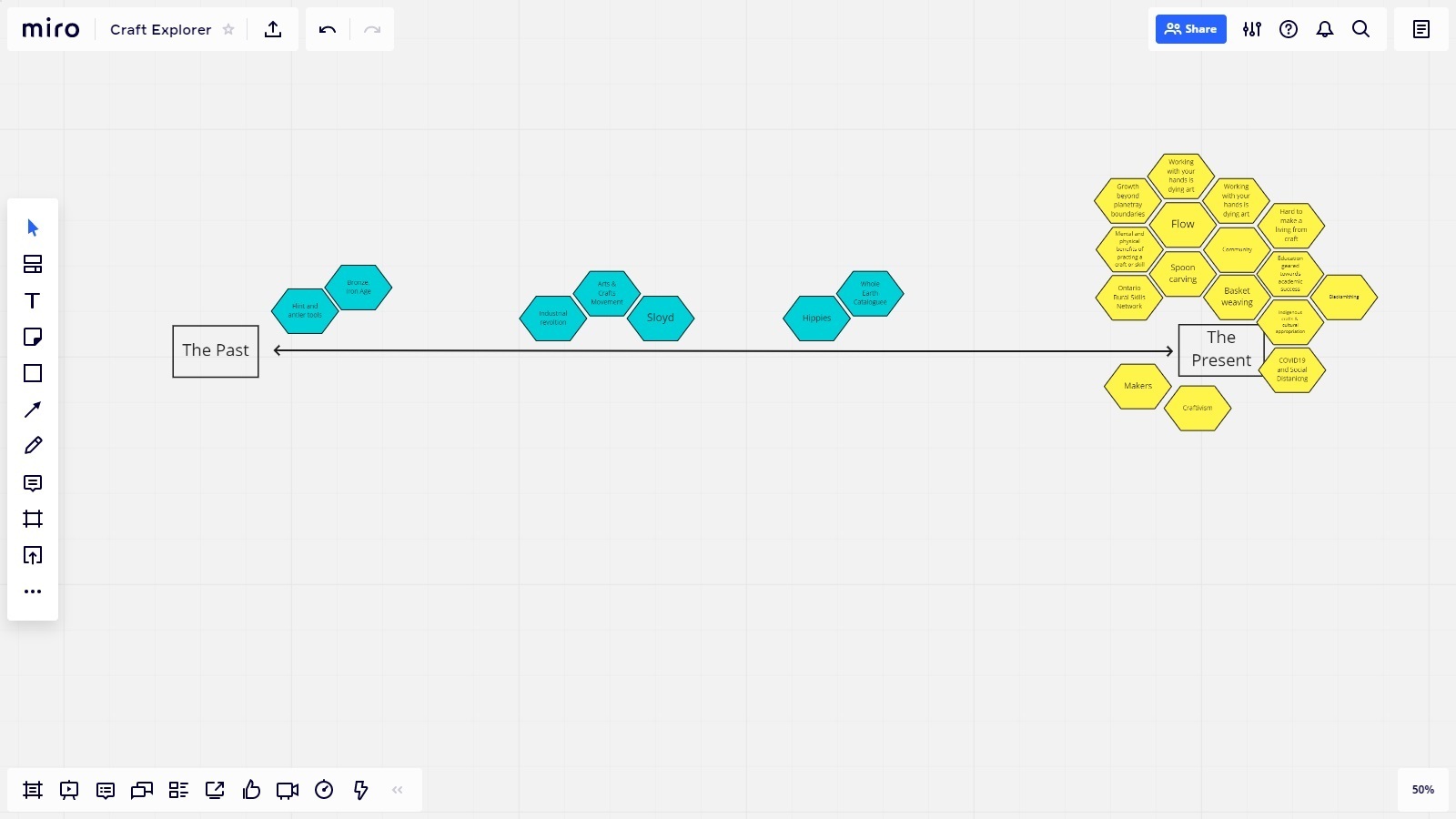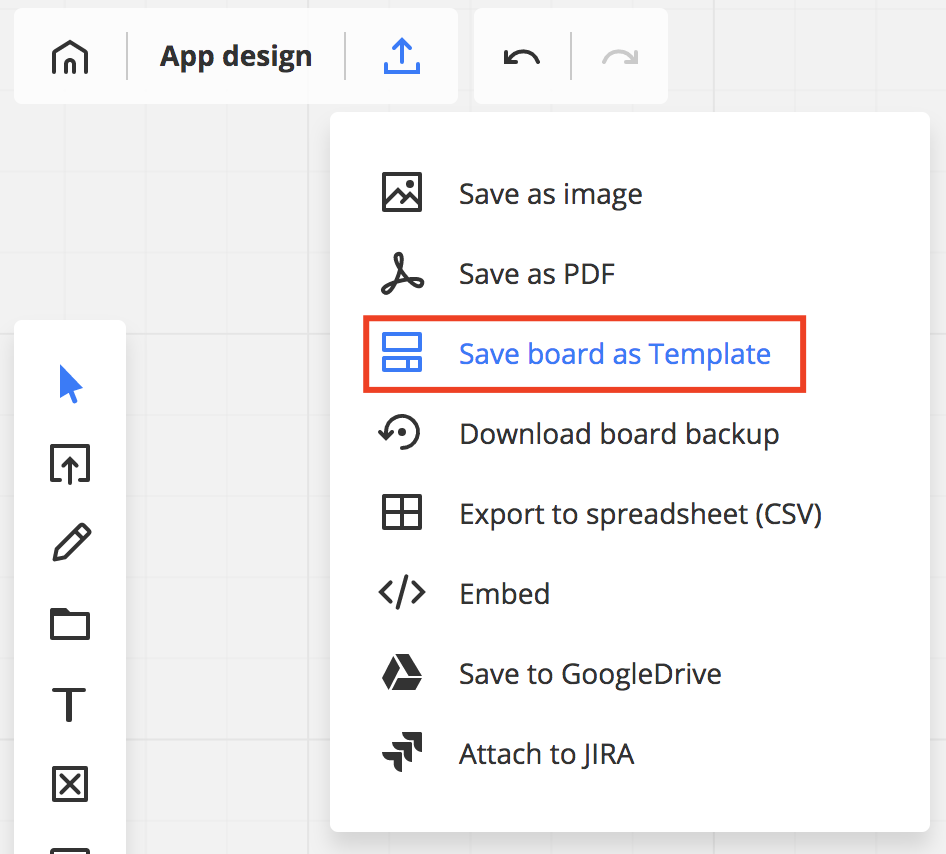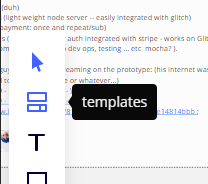Hi I’m a Knowledge Manager at ORIAS in Canada where i specialise in participatory working with clients using Participatory Narrative Inquiry developed by Cynthia Kurtz and the Future-Backward timeline method developed by Kurtz and Snowden at Cognitive Edge.
FB works by creating a story timeline using tesselating hexes place first to describe the present, then working backwards into the past before describing a state of ‘heaven’ which partciapants then work towards in a step-wise fashion. The process can be sued for both sensemaking and action planning.
Normally and ideally this is best done round a table, but in the age of COVID im looking to develop online options. MIRO seems a great platform to do this with. If anyone has any experience of designing templates or knows of something similar which can be adapted it would be great to hear from you.



